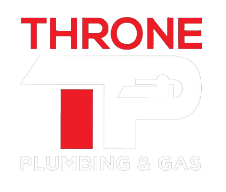Frozen pipes can become a nightmare for homeowners. Without proper preparation, a frozen or burst pipe can lead to leaks and major flooding. Surprisingly, one of the most easily overlooked (and potentially costly) Winter maintenance chores here in Ontario is preparing your plumbing for the cold weather. While freezing pipes can cause you to worry as a homeowner, there are steps you can take to avoid the hassle, expense, and cleanup associated with a burst pipe.
| Table of Contents |
Why do Frozen Pipes Burst in Winter?
If the water in your pipes gets cold enough to freeze, the water molecules will expand while changing form into ice. This forces the unfrozen water toward the faucet, causing a great deal of pressure to build up inside the pipe. When the pressure becomes too much, the pipe may leak or rupture altogether, leading to potentially devastating damage. The pipe thawing process can lead to leaks as well, because the ice itself may be blocking cracks in the pipe. Once it thaws, the water can come spilling out.

How to Prevent Frozen & Broken Pipes
There are proactive steps you can take to prevent pipes in your home from freezing and bursting. Below are a few tips for preparing your home plumbing for Winter.
- Keep your faucet running to prevent pipes from freezing. When the weather is extremely cold, you may want to consider leaving your tap running. There is no need to leave it on full force. A few drops to keep water moving through your plumbing system should be enough to stop them from freezing.
- Keep pipes thawed with warm air flow. Allow warm air to flow through areas where pipes are located in your home. This means keeping vents open, and opening doors and cabinets that lead to interior pipes. This includes those in the kitchen, bathroom, and basement.
- Seal exterior air leaks. This will help keep the air temperature in your home warm, preventing cold drafts from affecting your plumbing.
- Keep your home heated consistently. This means keeping your home heated while on vacation, and adding insulation to areas of your home that feel colder than the rest.
- Keep your garage door closed. This will prevent frozen pipes in the garage itself, and will help keep your home warmer in general.
- Drain and disconnect your garden hose. You need to drain the hose fully before the temperature drops, which means turning off the water to the hose bib, and fully draining the pipes. This way, neither the spigot outside nor the interior pipes will have water inside to freeze or break the pipe.
- Pipe Sleeve / Insulating Tape to avoid freezing pipes. You can buy products at your local hardware store that provide extra protection against frozen pipes. You may need to consult a professional before using these products if they are new to you, but they can work wonders for exposed plumbing.

Can I Fix a Frozen Pipe Myself at Home?
We are frequently asked “Will frozen pipes thaw on their own?”. While frozen pipes will eventually thaw as the temperature increases, the longer you allow a pipe to stay frozen, the higher the risk of it bursting. This is the worst case scenario, as the leaking and potential flooding damage can cost a fortune to repair. We highly recommend taking active steps to thaw frozen pipes in your home if the situation arises. Here’s what to do if you have a frozen pipe in your house:
1. First, shut off the water supply and determine which pipe is frozen. Depending on whether or not the pipe is accessible, you will have to follow different steps.
2. If you can easily access the frozen pipe (e.g. under the kitchen sink), you can try focused heat to thaw the ice. Try using a hair dryer or portable heater, and direct heat toward the pipe. Start closer to the faucet, and work your way back.
3. If the pipe is enclosed, you can raise the temperature inside your home via your thermostat, or try using an infrared lamp directed at the frozen pipe. The infrared heat can potentially penetrate the wall, helping to thaw freezing pipes. If you know where the frozen pipe is located, and the other methods aren’t working, it may be advisable to remove the drywall and thaw the pipe, rather than deal with the potential damage if the pipe bursts.
4. It’s possible to cause a ruptured pipe during the thawing process, so be prepared with supplies for clean up before beginning.
When to Hire a Plumber to Repair a Burst Pipe
Often, the best option to fix a broken pipe is to call a professional. Call a plumbing service for frozen pipes if you can’t locate the frozen section, it’s not exposed, or if you don’t feel comfortable thawing it yourself and dealing with the potential for rupture. When you call a plumbing service for frozen pipes, they will know what the best course of action to take is, leading to less damage and costly repairs. If the pipe has already burst, immediately turn off your main water valve. This will stop any further leaking or flooding, allowing you time to do damage control and get help from a professional.
If you require a plumber for frozen or broken pipes, Throne Plumbing is happy to help. Contact us at 905-244-0210 (Durham) or 416-855-9899 (GTA) for assistance with your Winter plumbing maintenance.

